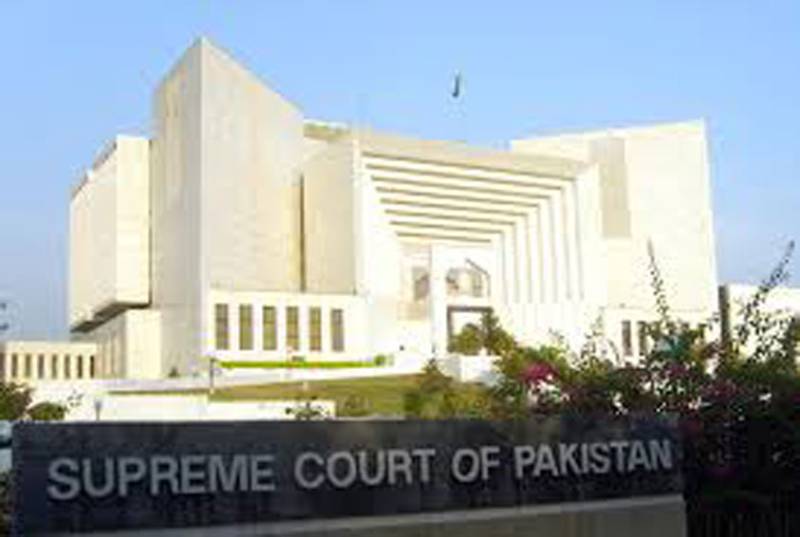ISLAMABAD - The Supreme Court on Thursday acquitted Umar Adeel a 20-time death sentence convict involved in RA Bazar Rawalpindi suicide blast case.
Umar Adeel Khan was accused of assisting suicide bomber. A suicide blast on a bus in Rawalpindi in 2007, killed 20 people and injured 36.
The trial court awarded 20-time death sentence while the Lahore High Court maintained the trial court verdict. A three-member bench of the apex court headed by Chief Justice Asif Saeed Khan Khosa heard the case through videolink from SC Lahore Registry.
During the course of proceedings, the state prosecutor said that it was not a normal blast as it was a targeted bomb blast.
Three people came in a car, one entered the bus while two others returned to the car, he added. He said that when the car turned, the bus exploded.
The chief justice asked when vehicle was traced then why the name of borrower who got car on rent did not appear for 11 months. If receipt of rent a car office was original then the police knew from the first day who had taken the car on rent.
Justice Sardar Tariq Masood asked why the accused was not arrested when the police knew the name. The state prosecutor said that the search for the accused continued for 11 months. Justice Sardar Tariq Masood asked the prosecutor how he was saying that the search continued when the accused’s name had not been on the record for 11 months.
State Prosecutor Amjad Rafique said that 20 people lost their lives in this incident.
“The martyrs were protecting our borders,” he added. He pleaded the court that this case should not be viewed as a normal case.
The chief justice asked the counsel that he had made a very big statement that the court should not judge this case as common law.
He asked the counsel that he was representing government, the court could look into it if the government made amendments in the law. The law that existed was the same for all and courts had to make decisions for all according to that law, he added.
He asked the counsel if he wanted a particular law for someone then there should be legislation in the Parliament.
The chief justice remarked that 20 precious lives had gone but the government could not lodge a good case. “These people have sacrifices for the nation and the nation has made a weak case for them,” he remarked.
He further remarked that identification parade was held after 11 months. He observed that two policemen were made witnesses as they could not deny the order in the uniform. He asked no more witnesses were found in such a large market.
The testimony of these witnesses was taken four to five months later and placed at the beginning of the police report, he added.
The chief justice remarked, “We have to answer before Allah as we have taken an oath”. He asked, “What should the court do if there is no evidence according to law?”.
He remarked that the level of evidence must be sufficient to prove involvement. In such a large case, so weak evidence was placed, he added. He observed that there was no prove that the accused had affiliation with any terrorist organisation.






